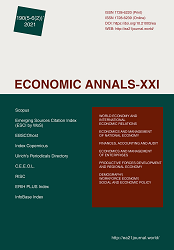Sustainability aspects of distance learning in higher education during the COVID-19 epidemic in a Hungarian University
Sustainability aspects of distance learning in higher education during the COVID-19 epidemic in a Hungarian University
Author(s): Eva Pinter, Éva Fenyvesi, Tibor PintérSubject(s): Higher Education , Health and medicine and law, Distance learning / e-learning
Published by: Institute of Society Transformation
Keywords: COVID-19 Pandemic; Online Learning; Distance Education; Sustainable Learning; Sustainable Lecturing; Teaching Methods; Universities; Efficiency;
Summary/Abstract: Our paper explores the impacts and sustainability of remote and online education framework introduced as a result of the COVID-19 epidemic in the case of two subjects (Macroeconomics and International Economics) taught at the Faculty of Commerce, Hospitality and Tourism, Budapest Business School. In our study we focused on specific aspects of shifting from traditional in-class learning to online education at our university. The most important pillars of the shift were the online implementation of all lessons, communication and examinations. We analyzed the measures of the education change, the effects of the change on the final results of the students and introduced the experiences of our students and teachers in this period, reflecting on the principles of sustainability. The primary data required for the analysis were diaries maintained by teachers and information available through the electronic study systems supporting online learning (CooSpace, Neptun), as well as student and teacher questionnaires and teacher interviews. The results for both subjects show that, despite the unmodified difficulty level of the exam questions, student performance improved during the remote learning period, that is, the learning process complies with the principles of sustainability. The implications of the study are therefore as follows: the coronavirus changed the educational framework of our university; the performance of students improved on both subjects; preparation time for teachers has increased, exam preparation time for students has also increased; consequently, online solutions used in distance learning period have changed the attitudes of the students and teachers as well. In the absence of personal feedback opportunities, regular monitoring tools were positively received by students, however, digital inequalities and previously less common tasks were more challenging for them. The experiences of the first semester affected by the epidemic were and can be utilized in later semesters as well.
Journal: Економічний часопис - ХХІ
- Issue Year: 190/2021
- Issue No: 5-6(2)
- Page Range: 58-74
- Page Count: 17
- Language: English

